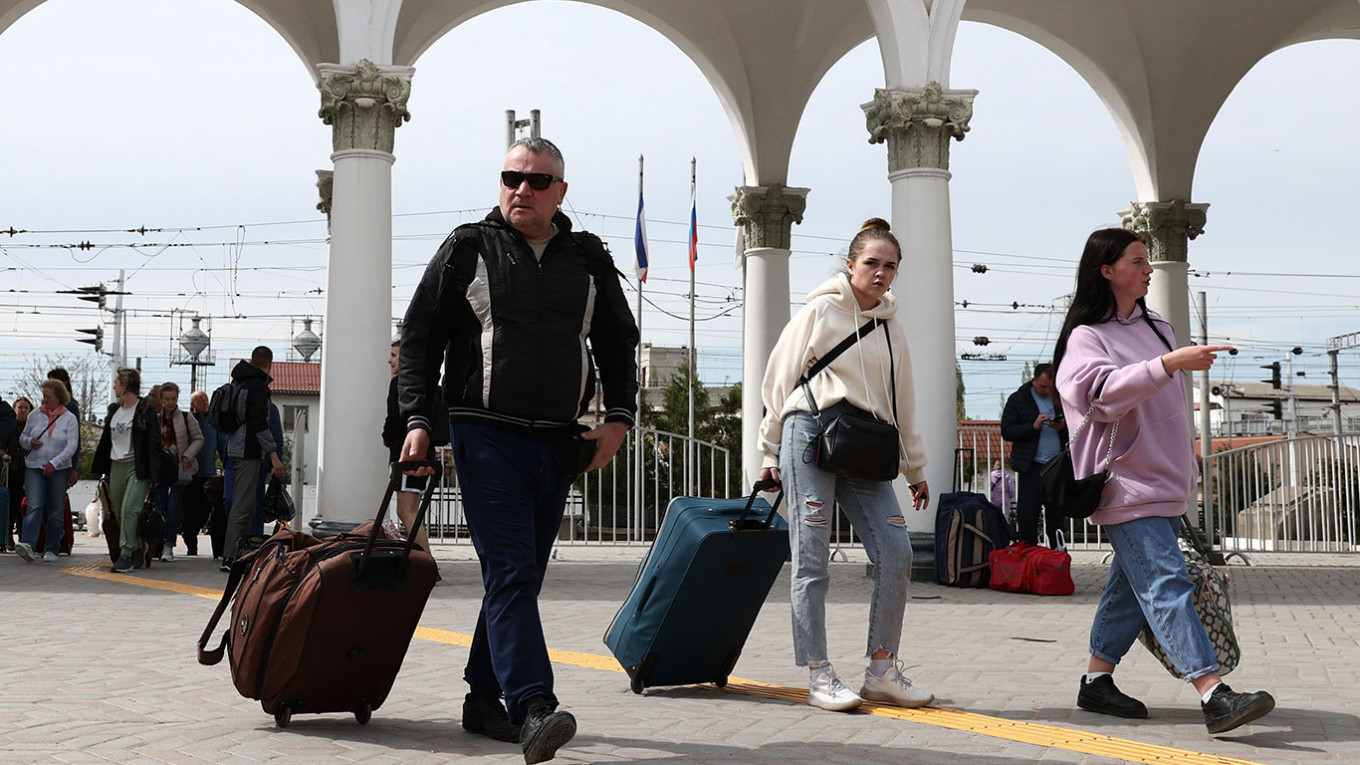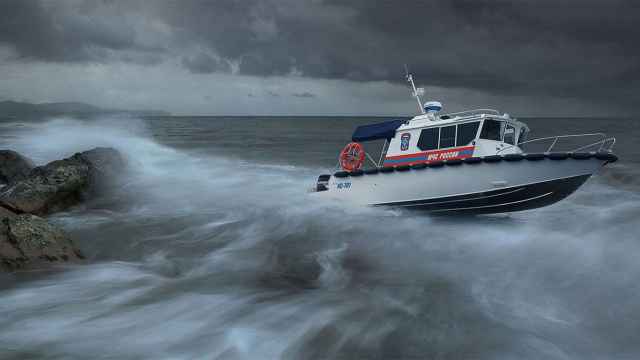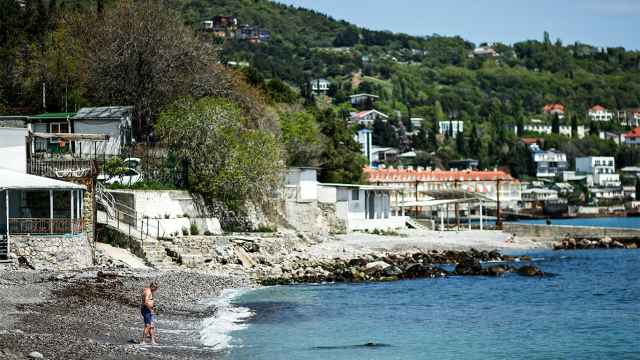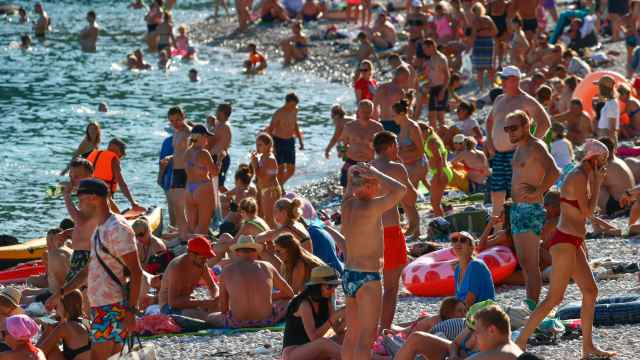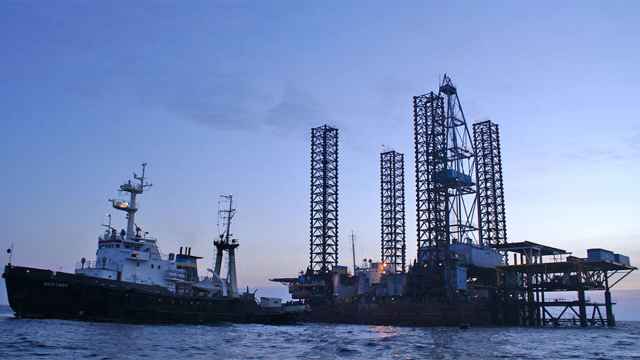The tourism business in Russian-controlled Crimea is bracing for a difficult summer season as large numbers of Russians cancel planned trips due to flight suspensions and security concerns caused by the war in Ukraine.
“About 50% of our [prospective] guests have chosen to cancel bookings with us,” a hotel representative in Crimea’s resort city of Alushta told The Moscow Times.
With its warm temperatures and picturesque coastline, Russian authorities have invested billions of rubles into turning the Crimean peninsula into a center for domestic tourism since its annexation from Ukraine in 2014, including the construction of a $3.7 billion bridge to the Russian mainland.
But the disruption from the ongoing fighting in eastern and southern Ukraine, including closures of local airports, looks set to deal a heavy blow to the region’s appeal to holiday-goers.
Along with 11 other airports across southern Russia, all commercial flights to Simferopol were suspended on the first day of the invasion of Ukraine. The closures have since been extended 13 times, with the latest reopening date set for May 19.
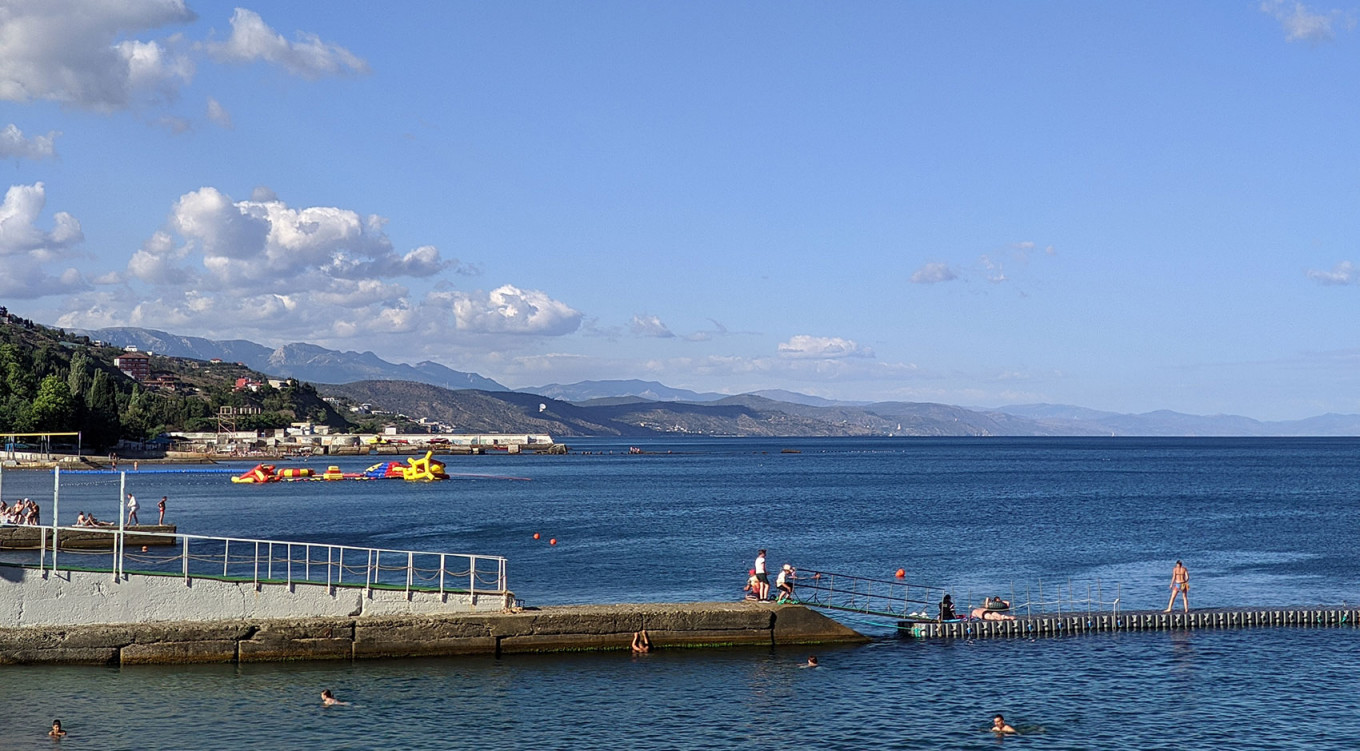
“We are registering mass [hotel] booking cancellations for May and June because air carriers are distributing flight cancellation notices,” the president of Russia’s National Union of Hospitality Industry Leonid Volkov told state-run news agency RIA Novosti last week.
In the absence of direct air links to Crimea, many tourists have chosen to suspend or cancel their vacation rather than undertake a lengthy overland journey.
“Airlines are offering travelers to exchange their tickets and fly to [the Black Sea city of] Sochi airport instead,” said the Alushta hotel representative who spoke on condition of anonymity. “[But] the onward trip to Crimea from Sochi takes 12 hours by bus or requires several train connections.”
Bookings at Crimea’s hotels are at less than 45%of their capacity, according to Volkov.
Beyond travel logistics, many Russians are also choosing to forgo vacations in Crimea this year out of safety concerns.
The local Russian authorities in Crimea upped its “terror” threat level on last month, citing a risk of “potential provocations.” While no incidents have been reported on the peninsula, a string of explosions and fires in Russia’s southern regions since the start of the war have left at least one person killed and dozens injured.
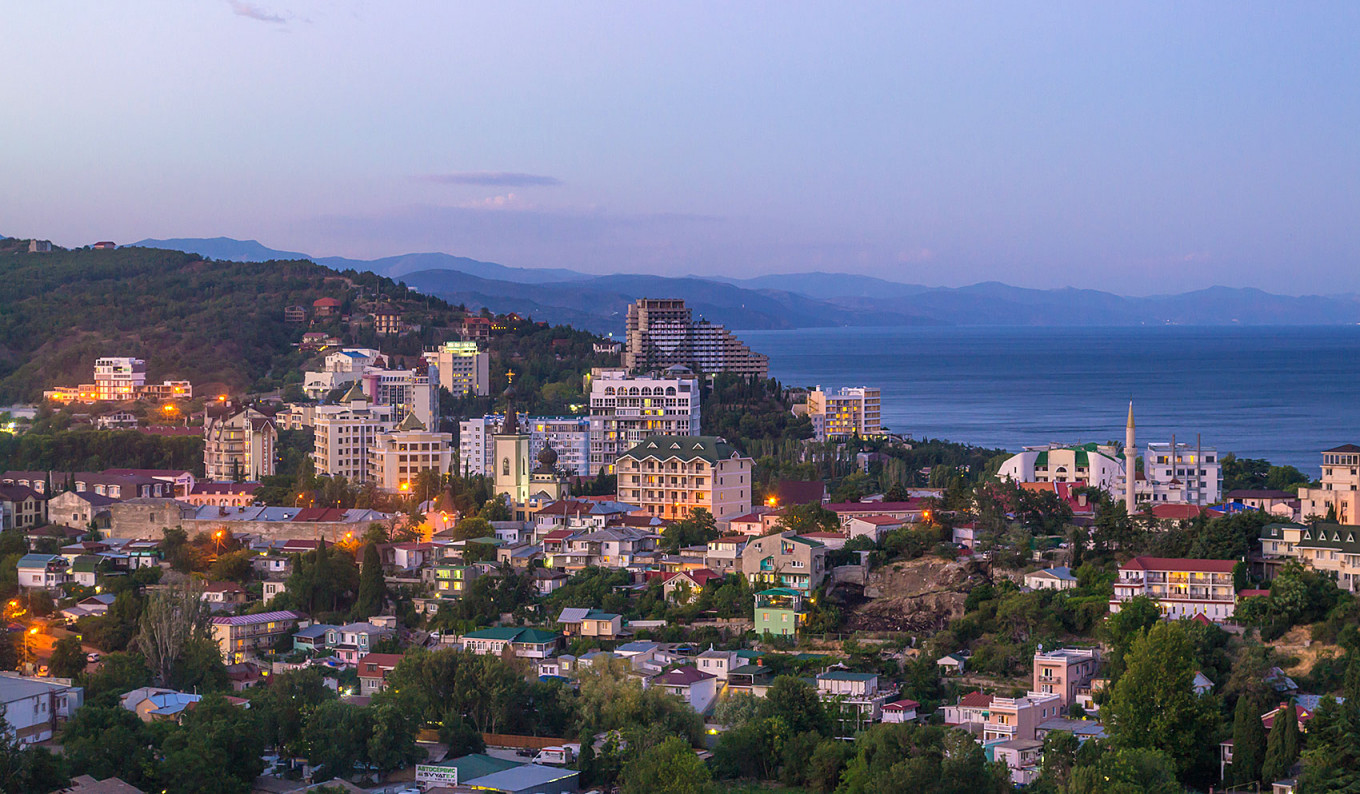
The Kremlin-appointed head of Crimea, Sergei Aksyonov, said Thursday that officials will take measures to ensure the safety of vacationers.
“Crimea is protected,” said Svetlana Rus, the head of Crimea’s Hospitality Union.
“We are not really worried about hotels being empty. Those who want to come will find a way to reach us,” she told The Moscow Times.
One replacement for Russian vacationers could be those already living in Crimea, and the Alushta hotel representative said her employer had begun lowering prices for vacation packages in an attempt to make them more appealing for locals.
Nevertheless, there seems to be little chance of hotel bookings in Crimea picking up substantially while the fighting in Ukraine continues.
Instead, Russian resorts around Sochi and in the North Caucasus look set to gain more visitors, domestic tourism expert Ilya Umansky told Russian media outlet Rosbalt last week.
“Places more distant from the mainland like Crimea... will lose out more than anywhere else,” he said.
A Message from The Moscow Times:
Dear readers,
We are facing unprecedented challenges. Russia's Prosecutor General's Office has designated The Moscow Times as an "undesirable" organization, criminalizing our work and putting our staff at risk of prosecution. This follows our earlier unjust labeling as a "foreign agent."
These actions are direct attempts to silence independent journalism in Russia. The authorities claim our work "discredits the decisions of the Russian leadership." We see things differently: we strive to provide accurate, unbiased reporting on Russia.
We, the journalists of The Moscow Times, refuse to be silenced. But to continue our work, we need your help.
Your support, no matter how small, makes a world of difference. If you can, please support us monthly starting from just $2. It's quick to set up, and every contribution makes a significant impact.
By supporting The Moscow Times, you're defending open, independent journalism in the face of repression. Thank you for standing with us.
Remind me later.


